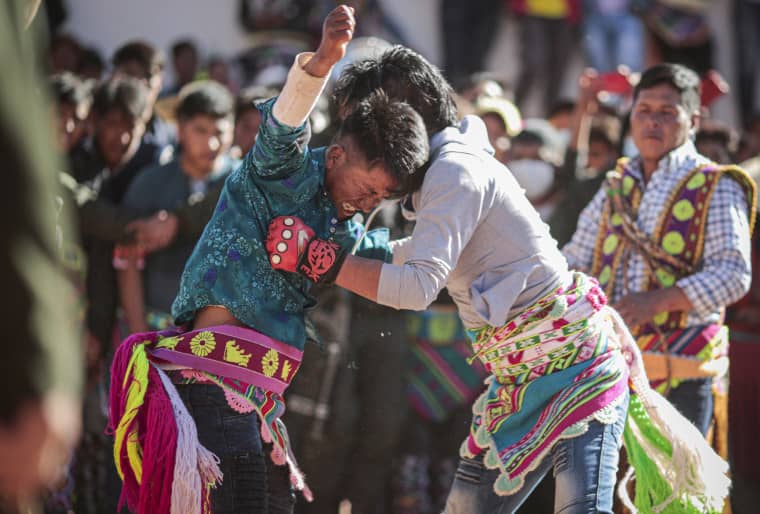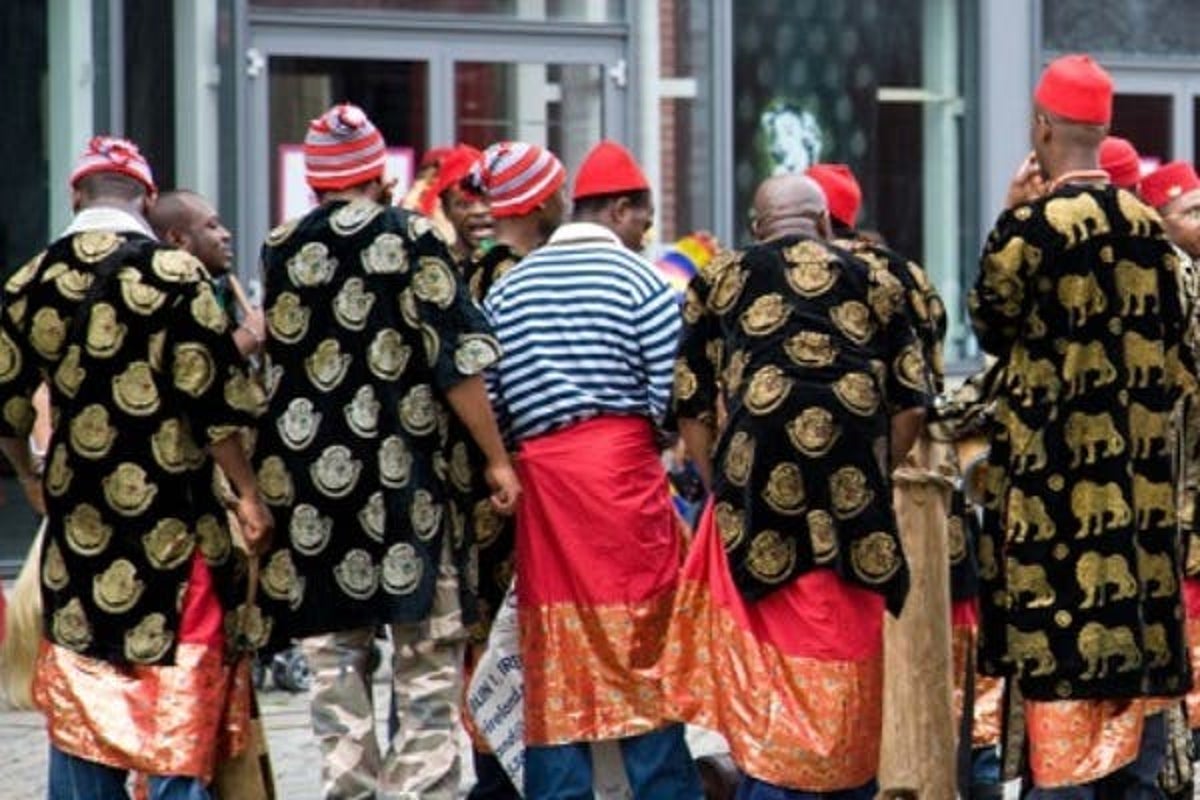International
Indigenous Tradition: The Tinku Ritual Combines Dance, Combat, And Cultural Legacy In Bolivian Town

- The Tinku tradition in San Pedro de Macha involves ritual dance and combat among Indigenous Quechua people.
- Participants like Jose Luis Paco Cruz stress the cultural importance of passing down the tradition to future generations.
- Tinku ceremonies encompass colorful attire, symbolic offerings, and occasional skirmishes.
EKO HOT BLOG reports that in the high-altitude Bolivian town of San Pedro de Macha, a centuries-old tradition called the “Tinku” brings together hundreds of Indigenous Quechua.
EDITOR’S PICKS
Individuals for a unique ritual dance intertwined with combat, aimed at settling disputes through hand-to-hand combat between neighbors.
The term “Tinku,” originating from Quechua meaning “encounter” and in the local Aymara dialect translating to “physical attack,” encapsulates the essence of this event.
Celebrated in select Quechua towns during May, the Tinku serves as a customary method of resolving conflicts, prioritizing resolution over allowing issues to escalate unchecked.
Jose Luis Paco Cruz, a 35-year-old Tinku participant known as a “dancer,” shares the generational significance of the tradition.
It emphasizes its transmission from his father to himself and now to his sons, Luis Eduardo Paco (17) and Brayan (10).
For him, passing down this cultural inheritance ensures the preservation of the custom for future generations.
The Tinku ceremonies feature participants adorned in vibrant traditional attire, including a distinctive leather “montera” helmet adorned with feathers reminiscent of Spanish conquistadors.

Indigenous Tradition: The Tinku Ritual Combines Dance, Combat, and Cultural Legacy in Bolivian Town
Additionally, these engagements symbolize reverence towards Mother Earth, sometimes culminating in symbolic offerings of blood as a testament to participants’ devotion.
Transitioning from joyful dances and music to occasional intense fights, the Tinku events draw attention from authorities, with police occasionally intervening as referees to mitigate excessive violence.
Onlookers, meanwhile, may assist in tending to fighters’ injuries, such as bleeding lips and faces, on the sidelines.
Esteban Paco Taquichiri, Jose Luis’ grandfather, acknowledges the inherent risks associated with the Tinku, acknowledging past instances of fatalities.
However, he highlights the evolving role of law enforcement in monitoring these gatherings, often resorting to measures like tear gas to maintain order and prevent escalation.
Reflecting on the essence of the Tinku, Taquichiri underscores its integral role within their cultural fabric, despite the occasional tragedies.
FURTHER READING
Furthermore, as participants converge in the town square, their confrontations symbolize a longstanding tradition deeply rooted in their identity, even amidst the challenges and risks it may entail.
Click here to watch our video of the week:
Advertise or Publish a Story on EkoHot Blog:
Kindly contact us at [email protected]. Breaking stories should be sent to the above email and substantiated with pictorial evidence.
Citizen journalists will receive a token as data incentive.
Call or Whatsapp: 0803 561 7233, 0703 414 5611

















